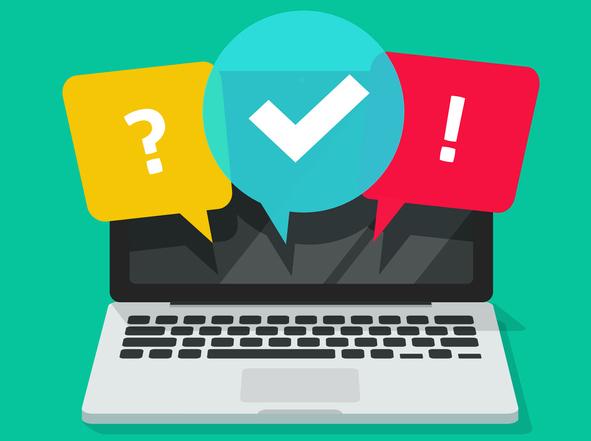The post-Covid rise of online classes and timed online exams raises the question: do non-invigilated online exams meet academic integrity requirements? The general answer is no because such assessments offer more opportunities for cheating and make it more difficult to identify occurrences of dishonesty. In non-invigilated exams, it is difficult to prove whether students did an assessment themselves or whether they got someone else to do it. Many higher education institutions (HEIs) have started to use monitoring tools such as ProctorU, Examity, Respondus and Proctorio. However, online proctoring software can both fail to identify suspicious behaviour (false negative) and flag non-suspicious behaviour (false positive).
- Zero cheating is a pipe dream, but we still need to push academic integrity
- Spotlight: Understanding and protecting academic integrity
- How to design low-stakes authentic assessment that promotes academic integrity
Considering the fairness issues with online proctoring technologies, some teachers opt to use online oral exams to deter cheating and verify student identity. In this article, we share our experience with an online oral exam that was used as student-identity-verified assessment (Siva) last year and lessons we learned.
How we set up the oral assessment
In semester one in 2022, I taught a large postgraduate course, where all assessment items (quizzes and project assignment) were non-invigilated. So, I introduced an online oral exam (Siva) to check if the project assignment was done by the student.
At the beginning of the semester, I (as the course coordinator [CC]) included in the electronic course profile a breakdown of assessments, including written and oral components. The information explained that “a 15- to 20-minute oral assessment will be organised to verify whether the work (project assignment) submitted has been completed by you” and that scores would be either a “pass” or a referral to the CC or school integrity officer for possible investigation for alleged academic misconduct. A “pass” would not affect their written submission score.
Students were told that if they were late or did not attend the oral assessment (without accepted documents such as a medical certificate), they would get zero marks for the project assignment.
The first step was to set up a booking system for the oral assessment. After marking the project assignment (but before releasing results), we asked tutors to email us a Zoom link and their availability for administering the oral exam. Next, we emailed students a link (and instructions as an attachment) pointing to student self-management software to book their oral exam.
Conduct of oral exam and identity verification
The mandatory oral exam was held via Zoom, which allows users to connect with video, audio and chat. Before the start of the exam, students were asked to show their student ID or a passport showing their full name and photo. Also, students were told to show their face for the duration of the exam. We told tutors administering the oral interview to record their sessions to the cloud.
Each student was asked three to four questions, depending on the duration of the exam. Then tutors sent a file containing the number of questions each student was asked and how many the student answered correctly to course administrator (CA) Anthony Jacobs.
Of 293 students enrolled in the course and interviewed, the CA identified that eight students had performed below average in the oral exam and forwarded the details (name and student ID) of these students to the CC. The CC reinterviewed seven of the eight students (because one student had already failed the project assignment) and all passed the oral exam. Hence, they maintained their project assignment result.
Lessons learned from the student-identity-verified assessment
We learned three main takeaways from conducting an online oral Siva:
- It was time-consuming to prepare information (collecting details of 293 students and availability of tutors administering the oral exam) and submit it to the person who developed the software for the booking system.
- Once the software developer had set up the booking system, we could not change it ourselves. Instead, we had to make a separate booking for those who would like to cancel and rebook a time slot for the oral interview. For those who didn’t book by the due date or respond to emails, we allocated them a slot based on tutor availability.
- As English was not most students’ first language, they struggled to answer the oral questions.
Considering the lessons we learned, in the second semester we only invited students who scored 70 per cent or more on the three assessment tasks. So, instead of interviewing 354 students, we invited only 90 students to attend a 15-minute mandatory oral interview. For students with language problems, we decided to read out the questions and also allowed students to see the questions. The problem we had with the booking system was still not solved.
Our verification approach has helped us to check if the project assignment was done by the student.
Temesgen Kifle is a lecturer and Anthony Jacobs is a course administrator, both in the School of Economics in the Faculty of Business, Economics and Law at the University of Queensland.
If you found this interesting and want advice and insight from academics and university staff delivered direct to your inbox each week, sign up for the Campus newsletter.




comment